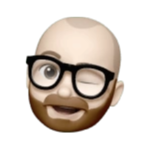About the course
With high salaries, dynamic responsibilities, and opportunities to shape the future of digital products, the role of a Product Manager is both exciting and impactful.
However, breaking into this field requires a mix of strategic thinking, technical knowledge, and business acumen—along with the right preparation.
Participants will engage in real-world case studies and hands-on exercises to apply their learning in practical scenarios. The curriculum includes training on commonly used Product Management technologies such as Jira, Confluence, SQL, and analytics platforms to ensure familiarity with the digital tools that drive modern product development.
You’ll explore key areas such as user research, product strategy, roadmap planning, agile methodologies, and metrics analysis. The course is also designed to be flexible, allowing you to learn at your own pace while balancing work or other commitments.
By the end of this course, you will not only gain a strong foundation in Product Management but also be prepared to take on middle PM roles in tech companies, fintech startups and SaaS businesses.



 Anyone with no prior experience in product management, looking to start as a PM
Anyone with no prior experience in product management, looking to start as a PM Current IT specialist (developers, project managers, QA, designers, marketing) looking to make a switch to product management
Current IT specialist (developers, project managers, QA, designers, marketing) looking to make a switch to product management Product Managers, looking to expand their technical knowledge
Product Managers, looking to expand their technical knowledge



















